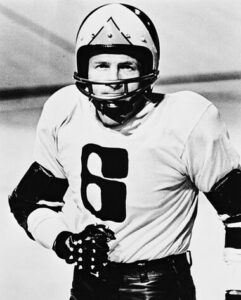By David Mullen
In their mission statement to the world, the nonprofit International Olympic Committee (IOC) is the “guardian of the Olympic Games and the leader of the Olympic Movement.” Their vision is to “Build a Better World through Sport.”
But as the Tokyo Summer Olympic Games officially begin on Friday, July 23, the delta variant of the COVID-19 virus is wreaking havoc around the world and is uncontrolled in many parts of Japan. Some are wondering why the Games are even being held.
This shapes up to be a polarizing Olympic Games — like the 1936 Games in Berlin and the 1972 Munich Games — when the world was in turmoil. The world is in turmoil, again, with a pandemic. As “guardian,” the IOC maintains the Games will be safe with strict enforcement of athlete’s basic activities, mask-wearing, social distancing and no spectators.
For 16 days, 11,000 athletes and staff from 206 nations will live in dorm-like conditions at the Olympic Village in Tokyo. IOC President Thomas Bach said that there was “zero” risk of athletes passing on the virus to Japanese or other residents of the village. Olympians are in Tokyo from parts of the world with extremely low vaccination rates and a high concentration of people with COVID-19 symptoms.
Most Olympic athletes must travel through airports to get to Tokyo, meaning human interaction is unavoidable. At press time, more than 80 Olympic participants and staff have been diagnosed with COVID-19 since arriving to the Games and have been quarantined or placed in health and safety protocol.
And the Japanese people have spoken. They do not want the Olympics in their country. A recent survey of Japanese citizens reported 83 percent do not want the Games to proceed. Nearly one-half million residents have signed a petition under the heading “Cancel the Tokyo Olympics to protect our lives.” It didn’t work.
Japanese corporate giant Toyota is a top-tier Olympic partner, spending more than $1 billion with the IOC. Toyota will not be airing any Olympic-themed advertisements on Japanese television during the Tokyo Games. That is like Anheuser-Busch deciding not to advertise during Olympic Games in St. Louis. Doesn’t that send a clear message to the IOC?
“There are many issues with these Games that are proving difficult to be understood,” said Toyota chief communications officer Jun Nagata in a press conference. Nagata is not alone, and he is in the city holding the nearly three-week long event. It is proving difficult to understand here in Dallas, which is 6,450 miles away.
In Japan, Toyota is distancing the company from the pandemic-plagued Games. In the United States, Plano-based Toyota North America will continue with their media schedule throughout the Olympics.
The IOC has been vehement that the Games will go on. For fans of the Olympic Games and families of the elite competitors, it will become a made-for-TV sports series. And that is just how NBC probably wants it.
Corporate revenue is the IOC cash cow. NBC has committed $7.5 billion to broadcast the Olympic Games in America through 2032. NBC is the IOC’s largest corporate sponsor. Reuters reported that NBCUniversal Chief Executive Jeff Shell sees the upcoming Tokyo Games as the most profitable Olympics in NBC’s history.
“I think we’re pretty optimistic about both the ratings and the economics of the Olympics and advertisers have embraced it,” Shell said at a conference. “Every Olympics has an issue that people worry about in the run up to the Games.
“I lived in London,” Shell said, “[and] everybody was worried about the traffic. And last time [in Rio de Janeiro] it was Zika, and then once the Opening Ceremony happens, everybody forgets all that and enjoys the 17 days. And I think this is going to be the same thing.” Zika was no COVID-19.
Shell should understand that turning the networks of NBCUniversal from sports coverage to 24-hour medical channels is not a rating’s bonanza. Neither is televising sporting events without fans in the stands. Is that what viewers — and network sponsors — really want to see? Ask Major League Baseball, the NHL and MLB about last year.
CNN has sports expert Bob Costas on staff. Costas has hosted 12 Olympics on TV and explicitly stated that the Games should be cancelled. CNN is sending Dr. Sunjay Gupta as a correspondent for the Tokyo event. I assume Gupta is not there to report on the USA’s chances in the decathlon.

I cannot stop thinking about the premise of the 1975 film “Rollerball,” starring James Caan and John Houseman. Caan played Jonathan E., the LeBron James of Rollerball. Houseman played Mr. Bartholomew, the chairman of Energy Corporation and owner of the Houston franchise that uses “Multivision” to broadcast the games worldwide.
Bartholomew preaches of the benefits of a corporate-run society. His fellow owners decide that a game between Houston and New York will be played with no penalties, no substitutions and no time limit. They want to eliminate Johnathan E., because he respects individualism and human purpose.
It’s as if, in 2021, the IOC and affiliate partners like NBC prefer a corporate-run society at the expense of individualism and human purpose. Life imitates art.
The 2021 Tokyo Summer Olympic Games will be surreal. There will be no live audience for the opening and closing ceremonies, no athlete interaction and no spectators waving flags representing their countries to inspire their representatives. In these Olympics, silence will be golden, and silver and bronze and seen across the networks of NBC, thanks to guardians at the IOC.
